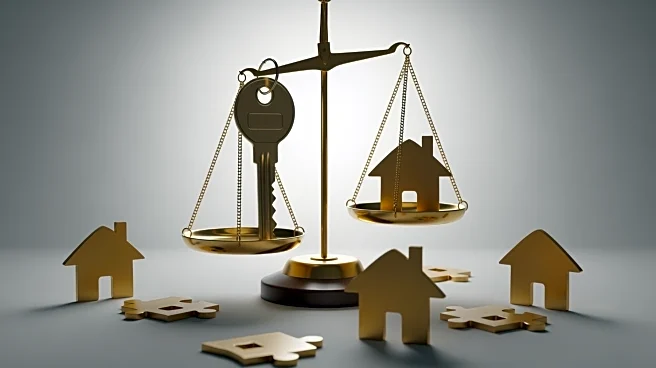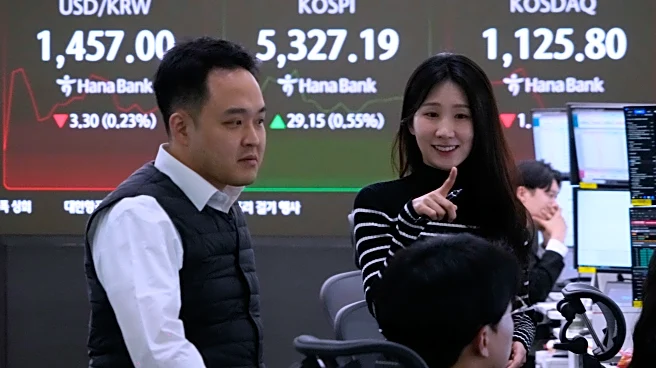What's Happening?
The U.S. housing market is showing signs of becoming a buyer's market, with bidding wars cooling off and mortgage rates potentially decreasing. However, starter homes remain scarce, particularly in fast-growing areas like Austin, Texas. The median home price
in Austin is significantly higher than what median income earners can afford, largely due to restrictive zoning and land use regulations. Builders are focusing on luxury homes, which are more profitable, leading to a shortage of affordable entry-level homes. This trend is reflected nationwide, affecting first-time homebuyers.
Why It's Important?
The scarcity of starter homes in a buyer's market poses challenges for first-time homebuyers, impacting their ability to enter the housing market. This situation can exacerbate economic inequality, as affordable housing becomes less accessible. The focus on luxury homes by builders may lead to increased urban sprawl, as buyers are forced to look further from city centers for affordable options. This trend could influence public policy, prompting discussions on zoning reforms and incentives for building affordable housing. The housing market dynamics are crucial for economic stability and social mobility.
What's Next?
Potential solutions include revising zoning laws to allow for more density and affordable housing options in urban areas. Policymakers may consider incentives for builders to focus on entry-level homes. The trend of 'drive till you qualify' may continue, with buyers seeking homes in more affordable suburbs, impacting commuting patterns and infrastructure needs. Stakeholders, including local governments and housing advocates, may push for reforms to address the imbalance in housing availability. Monitoring mortgage rates and market conditions will be essential for predicting future housing trends.















